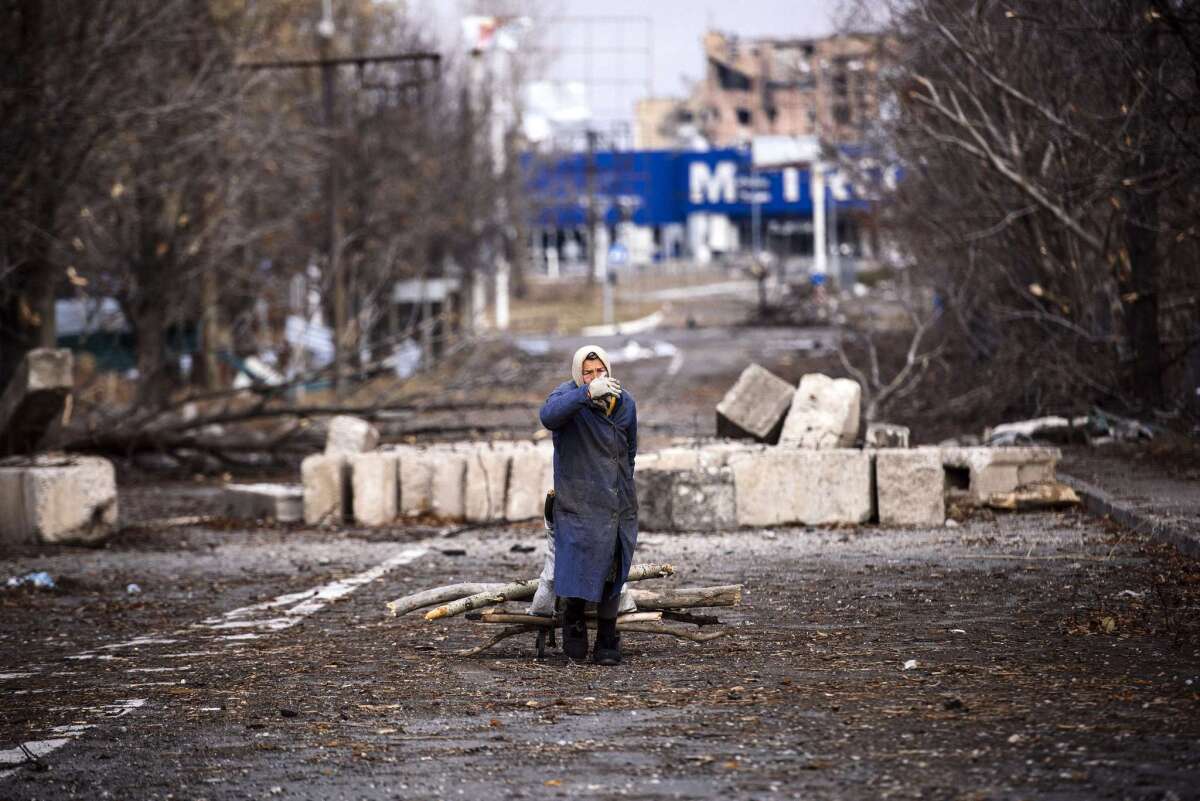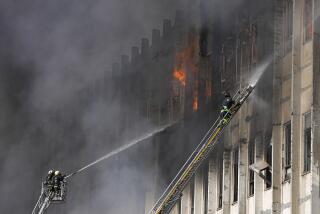Russia recognizes Ukraine separatists, provoking new sanctions threat

Russiaâs Foreign Ministry announced Monday that it will ârespect the willâ of separatist voters in eastern Ukraine who elected leaders for their proclaimed independent republics in defiance of international warnings that their actions were illegal.
Moscowâs swift show of support for the separatists it is accused of arming and instigating drew new warnings from Germany and other European Union states that further sanctions may be imposed on Russia if the 7-month-old war with Ukrainian government forces intensifies.
Russian President Vladimir Putin had signed off on a Sept. 5 cease-fire deal with Ukrainian President Petro Poroshenko and representatives of the breakaway regions. Putin and other Russian officials portrayed Sundayâs vote for prime ministers and local assemblies for the two regions as envisioned in the cease-fire agreement signed in Minsk, Belarus, and brokered by the Organization for Security and Cooperation in Europe.
But the Minsk accord called for early local elections in conformance with Ukrainian law, and the Kiev government, the European Union, the OSCE, the United States and the United Nations all deemed the separatist votes illegal and illegitimate as they sought to establish the regionsâ independence of Ukraine.
âWe respect the will ... of the residents of [Ukraineâs] southeast. The elected representatives have got the mandate for the practical efforts aimed at the restoration of normal life in the regions,â the Russian Foreign Ministry said in a statement.
The Russian government called for âa stable dialogueâ between the Ukrainian government and the new leaders of the separatist-occupied eastern regions and said Moscow is âready to constructively promote the Ukrainian crisis settlement together with our international partners,â the TASS news agency reported.
In Berlin, the German government swiftly confirmed that it âdoes not recognize these illegitimate elections,â said Steffen Seibert, a spokesman for Chancellor Angela Merkel, who had called Putin on Friday to urge him to dissuade the separatists from undertaking the widely condemned vote.
âIf the situation worsens, it may be necessary to consider intensifying the sanctions,â Seibert told reporters.
The separatistsâ defiance and the Kremlinâs endorsement of the votes appeared to set Russia on yet another diplomatic collision course with the West just days after a major dispute between Moscow and Kiev on winter energy supplies was resolved under European Union mediation. Russiaâs Gazprom energy giant agreed on Thursday to resume natural gas deliveries to Ukraine in exchange for payment of about two-thirds of its $5.3 billion arrears by the end of this year.
Leaders of the separatist regions immediately proclaimed their alliance with Russia and also alluded to the possibility of negotiating an end to the armed conflict with Ukrainian government forces on condition Kiev cease challenging their authority over the territory they occupy.
âOver 80% of the economy is directed to Russia. ...The republic is ready to sell mineral resources, for example coal, valves and electric locomotives,â Igor Plotnitsky, the Soviet army veteran elected to lead the Luhansk Peopleâs Republic, announced on Monday, TASS reported. âWe have much what finds a market in Russiaâs territory.â
Alexander Zakharchenko, who was elected to lead the Donetsk Peopleâs Republic, was to be inaugurated Tuesday. He said after being declared the winner with more than 70% of the vote that he was ready to negotiate with Poroshenkoâs government to restore peace in the region on condition Kiev respect its independence.
The occupied regions of eastern Ukraine, known as the Donbass as its mines and factories are located in the Don River basin, have long produced components for Russian military equipment, including aircraft engines for MiG fighter jets and guidance systems for Russian intercontinental ballistic missiles. Its uranium mines also produce fuel for Russian nuclear reactors.
It was concern over the future of the outdated industries of the Donbass that last year set Russia and former Ukrainian President Viktor Yanukovich against an association agreement negotiated between the European Union and pro-Western forces in the Ukrainian leadership. When Yanukovich refused to sign the EU deal in late November, he sparked a rebellion that ousted him from power three months later and prompted Putin to seize Ukraineâs Crimea region and back the separatists in the east.
The Minsk cease-fire agreement had calmed some of the fighting in the Donbass region that has claimed at least 4,000 lives since April. But the truce has gradually eroded and hundreds have been killed during the two months that it has ostensibly been in effect.
The regions led by Plotnitsky and Zakharchenko have been referred to by some separatists as components of an emerging state of Novorossiya, the name given the area along the Black Sea coast by Imperial Russia when it conquered the region in the 18th century.
Plotnitsky said in an interview with Russiaâs RIA Novosti agency that he envisioned other restive regions of southeast Ukraine joining the secession out of disaffection with Kievâs rule.
âThere should be not [just] two republics in Novorossiya,â Plotnitsky told the agency, listing the entire southern coastal area between the Russian Federation and Ukraineâs southwestern border with the Russian-occupied Transdniestria area of Moldova.
Follow @cjwilliamslat for the latest international news 24/7
More to Read
Sign up for Essential California
The most important California stories and recommendations in your inbox every morning.
You may occasionally receive promotional content from the Los Angeles Times.










